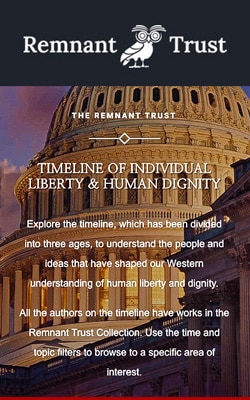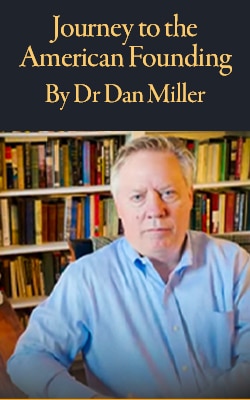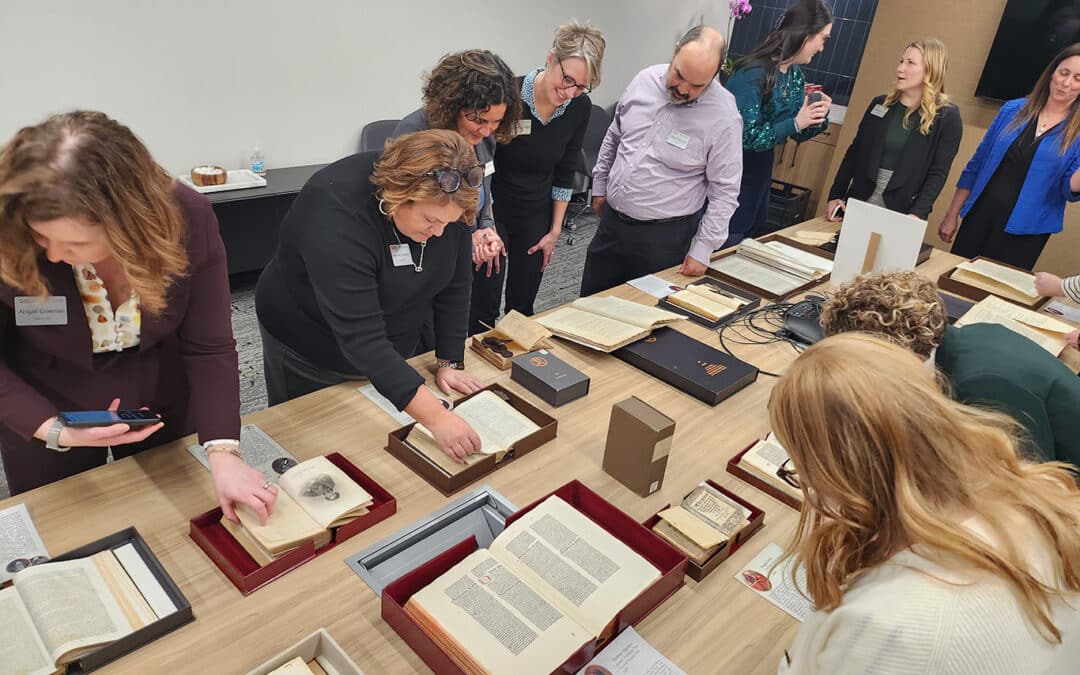Mutz Philanthropic Leadership Institute Alumni Symposium 2023
The Remnant Trust’s rich tapestry of human thought was on display at the Mutz Philanthropic Leadership Institute Alumni Symposium hosted by the Indiana Philanthropy Alliance. Attendees immersed themselves in the profound ideas that have shaped civilizations, from the Ancients to the 20th Century. Our curated collection invites you to connect with the essence of civic engagement through timeless manuscripts, fostering a deeper understanding of our shared history and the intellectual heritage that ignites conversations on civic responsibility and impactful leadership.
Classical works exhibition included:
- [Two Works in One Volume] a. Platonis Gorgias Incipit b. Ars de Foce gramatici de nomine et verbo by Plato, 1475
- Nichomachean Ethics by Aristotle, 1488
- Marcus Aurelius Antoninus The Roman Emperor, his Meditations Concerning Himself: Treating of a Naturall Mans Happinesse; wherein it Consistesth, and of the Meanes to Attaine unto it by Marcus Aurelius Antoninus Augustus, 1635
- St. Augustine, Of the Citie of God: With the Learned Comments of Io. Lod. Viues by Augustine of Hippo, 1610
- The Excellent Priviledge of Liberty and Property Being a Reprint and Fac-simile of the First American Edition of Magna Carta, Printed in 1687 Under the Direction of William Penn by William Bradford by Magna Carta, 1542
- Summa Theologiae Pars Secunda by Thomas Aquina, 1475
- Leviathan, or The Matter, Forme, & Power of a Common-Wealth Ecclesiasticall and Civill by Thomas Hobbes, 1651
- The Praise of Folie. Moriae encomium a Booke Made in Latyne by that Great Clerke Erasmus Roterodame. (The Praise of Folly) by Desiderius Erasmus, 1549
- An Essay Concerning Humane Understanding. In Four Books by John Locke, 1690
- The Theory of Moral Sentiments by Adam Smith, 1759
- A Vindication of the Rights of Woman: with Structures on Political and Moral Subjects by Mary Wollstonecraft, 1792
- The American Crisis by Thomas Paine, 1819
- My Bondage and My Freedom. Part I. – Life as a Slave. Part II. – Life as a Freeman by Frederick Douglass, 1855
- Frankenstein; or, The Modern Prometheus. by Mary Shelley, 1869




